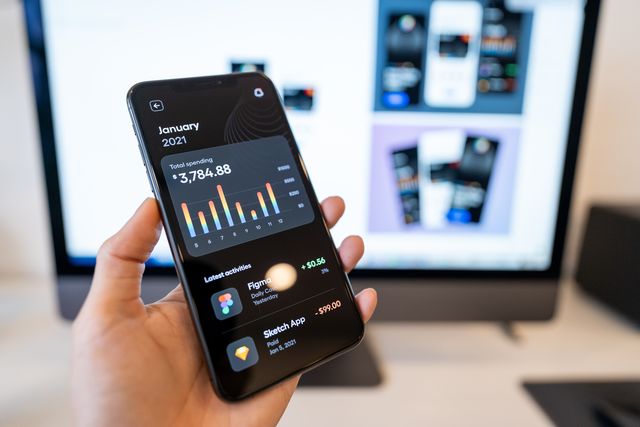4 Tips to Secure Your Online Transactions
- Category: Pics |
- 18 Jan, 2024 |
- Views: 772 |

Since the availability of online mobile banking platforms, online money transactions have become a part of our daily lives. Whether you are at a grocery store or shopping for your clothes, you will be conducting financial transactions online through your mobile devices.
However, this convenience also comes with certain risks, as cyber threats and vulnerabilities continue to evolve and strengthen. In the wake of these vulnerabilities, protecting your financial information during online transactions is very important.
To help you out in this regard, we have mentioned the top 4 tips that will help you secure your online transactions.
1. Use Secure and Trusted Platforms
When you are making online purchases or sending money online, make sure that you are using websites that are secure and trusted by consumers. You can identify such websites by looking at the URL tab of your browser. If you see a padlock symbol in the address bar, it means the site is secure to perform online transactions. Lenders such as SoFi make it easier with their mobile app.
Also, you can check the security of a website by checking the URL. If the URL begins with "https://" instead of http://, you should ensure that the site is secure. The "s" in "https" stands for secure, and indicates that the website encrypts data transmitted between your browser and the site’s server.
This makes it harder for hackers to intercept and steal sensitive information. Just be sure to avoid clicking on links from suspicious emails or unknown sources as these links might lead to phishing websites that can compromise your personal information.
2. Strengthen Passwords
Passwords are your fence against online frauds and scams. Create strong, unique passwords for your accounts, incorporating a mix of uppercase and lowercase letters, numbers, and special characters. It is seen that people use easily guessable information like birthdays or common words as passwords.
Make sure to avoid this approach to secure your finances. Consider using a reputable password manager to generate and store complex passwords securely. While creating passwords, be sure to create the ones you will easily remember and won’t track off. This will ensure that your passwords are both secure and easy to remember for you.
Additionally, enable two-factor authentication (2FA) wherever possible. 2FA adds an extra layer of security by requiring a second form of verification, such as a code sent to your mobile device or generated by an authentication app, along with your password. This reduces the risk of unauthorized access, even if your password is compromised.
3. Regularly Monitor Your Accounts
To stay secure and protected from online frauds, it is advised to keep monitoring your bank accounts both through mobile banking apps and visiting physical bank branches. Check your bank and credit card statements for any unauthorized transactions or suspicious activities.
You can also set up alerts and notifications for account activities, such as large withdrawals or purchases, to quickly identify any potential fraudulent behavior. Report any unauthorized transactions or login attempts to your financial institution immediately.
4. Be Cautious with Public Wi-Fi
Most hackers try to access your accounts by using public Wi-Fi. That’s why you will have to stay vigilant of using any public Wi-Fi connections around you. Whenever you are in public, try to use your mobile data and avoid using public networks.
These public Wi-Fi hotspots can be vulnerable to cyberattacks, making it easier for hackers to intercept data transmitted over these networks. If you must use public Wi-Fi, consider using a virtual private network (VPN) to encrypt your internet connection and add an extra layer of security. Doing this will restrict hackers from accessing sensitive information on your connected devices.

